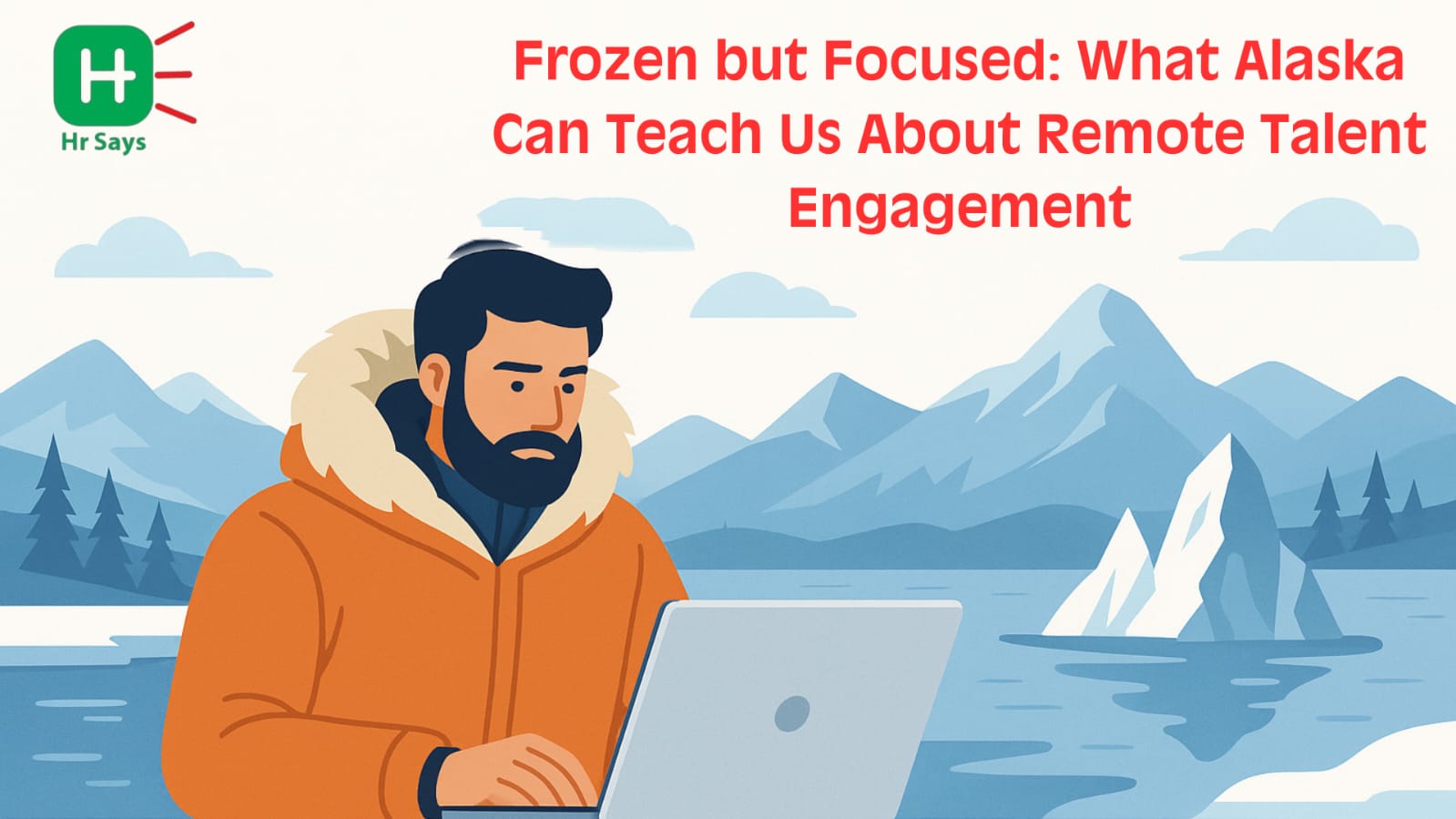What does one of America’s most isolated regions know about remote work? More than you'd expect. In Alaska, distance is not an idea, it is a way of life. And yet, talent stays, shows up, and performs. Something’s working. Let’s unpack why.
Built for Distance
In Alaska, remote isn’t a perk—it’s reality. Snow-blocked roads. Patchy signal. Six hours of daylight in winter.
And still, people manage teams, deliver outcomes, and build careers.
That’s because systems are intentionally designed for human distance—without emotional disconnect. Engagement here isn’t about online games or pizza Fridays. It’s about clarity, trust, and rhythm.
So, What’s the Alaska Way?
These habits keep the engine running:
● Clear Expectations: No micromanagement. But no vagueness either. In places where time and daylight are precious, workers need to know exactly what’s expected and by when.
● Resilient Communication: Not flashy. Not constant. Just reliable. Weekly check-ins. Voice over video. Prioritized clarity over perfection.
● Purpose Over Perks: There are no corporate yoga sessions in -30°F. But there's purpose. A shared understanding that each task supports a bigger mission—be it community health, safety, or innovation.
● Independent Doesn’t Mean Alone: Autonomy is a given. But connection isn’t ignored. Leaders check in without hovering. Peers offer help without judgment.
● Consistency Wins: Engagement isn’t an event. It’s built into process—slowly, silently, and every single day.
What Others Often Miss
Most companies chase engagement through noise. Loud events. Loud apps. Loud
announcements. But noise isn’t connection.
In the Alaskan way, silence is respected. Engagement is not constant chatter—it’s quiet, trusted
rhythm.
That kind of rhythm doesn’t demand energy—it gives it.
The Lesson for the Rest of Us
You don’t need to live in the Arctic to take the hint. Remote workers everywhere are asking for
the same things:
● Less noise, more purpose
● Clarity over micromanagement
● Flexibility that respects their pace
● Leaders who trust before they track
Alaska just figured it out earlier. Not because they wanted to. But because they had to.
Conclusion
In a world rushing to reinvent remote work, Alaska reminds us: It’s not about being always-on.
It’s about being always-connected—to purpose, people, and process.
No slogans. No noise. Just work that means something. And sometimes, that’s all remote talent
really needs.

 Remote work may feel limitless—but what happens when physical limits push the boundaries?
Alaska offers quiet but powerful lessons on keeping remote workers grounded, engaged, and
invested. Far from flashy, the model works—and it speaks volumes.
Remote work may feel limitless—but what happens when physical limits push the boundaries?
Alaska offers quiet but powerful lessons on keeping remote workers grounded, engaged, and
invested. Far from flashy, the model works—and it speaks volumes.








.jpeg)
.jpeg)

.jpeg)





.jpeg)



.jpeg)

.jpeg)



